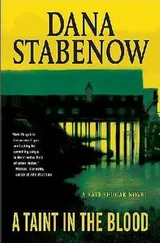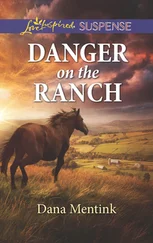Dana Spiotta - Eat the Document
Здесь есть возможность читать онлайн «Dana Spiotta - Eat the Document» весь текст электронной книги совершенно бесплатно (целиком полную версию без сокращений). В некоторых случаях можно слушать аудио, скачать через торрент в формате fb2 и присутствует краткое содержание. Год выпуска: 2006, Издательство: Scribner, Жанр: Современная проза, на английском языке. Описание произведения, (предисловие) а так же отзывы посетителей доступны на портале библиотеки ЛибКат.
- Название:Eat the Document
- Автор:
- Издательство:Scribner
- Жанр:
- Год:2006
- ISBN:нет данных
- Рейтинг книги:3 / 5. Голосов: 1
-
Избранное:Добавить в избранное
- Отзывы:
-
Ваша оценка:
- 60
- 1
- 2
- 3
- 4
- 5
Eat the Document: краткое содержание, описание и аннотация
Предлагаем к чтению аннотацию, описание, краткое содержание или предисловие (зависит от того, что написал сам автор книги «Eat the Document»). Если вы не нашли необходимую информацию о книге — напишите в комментариях, мы постараемся отыскать её.
shifts between the underground movement of the 1970s and the echoes and consequences of that movement in the 1990s. A National Book Award finalist,
is a riveting portrait of two eras and one of the most provocative and compelling novels of recent years.
Eat the Document — читать онлайн бесплатно полную книгу (весь текст) целиком
Ниже представлен текст книги, разбитый по страницам. Система сохранения места последней прочитанной страницы, позволяет с удобством читать онлайн бесплатно книгу «Eat the Document», без необходимости каждый раз заново искать на чём Вы остановились. Поставьте закладку, и сможете в любой момент перейти на страницу, на которой закончили чтение.
Интервал:
Закладка:
He sees the plane from outside, like a movie. He is floating over the flat expanse of the whole Ca Mau Peninsula. For a moment he sees everything at once. But he starts to fall, he follows the spray down as if he were floating on it and sees it fall on forests of mangrove and jackfruit trees, rice paddies and rainwater cisterns. He sees people looking up, confused, standing under the trees. He sees them eating and drinking the stuff as it lands on everything in blanket coverage. It is extreme, jerky close-ups now. He hates this, but he gets so close he can see faces, mouths. He hears breathing. He smells their moist skin.
It can get really bad when this happens .
He shakes it off. In truth, he can force himself back sometimes. He feels his throat constricting, and that falling sensation, like when you wake too quickly from a dream and you jump in your bed.
He blinks and again sees the interior of the plane. He leans against the wall outside the cockpit, catching his breath.
He was lying down on his couch, covering his head, but it didn’t leave him.
As he looks up, he hears the sounds of gunshots in quick, automated succession, ricocheting. The pilot turns from the controls and looks at him, his face young, smiling, and then as Henry watches he grows swollen red sores on his cheeks and mouth. It is that stuff again, trying to get out. Henry looks away. He sees the sign, handwritten, over the cockpit area, in white, over a drawing of Smokey the Bear in his hat. It reads
Only you can prevent forests
When it finally stopped, Henry’s body was covered in a cold sweat. Hives and welts appeared on his face and arms.
Partial list of Henry’s symptoms:
acne, or chloracne (adult, itinerant)
hypervigilance
insomnia (constant, chronic)
depression (underlying, with occasional acute crisis)
suicidal ideation (see above, crisis)
hallucinations / intrusive thoughts / night terrors
sense of helplessness: intractable, long-term, overwhelming
shame
despair
Jason’s Journal
DID YOU EVER wonder what your body would look like by age forty if you never exercised, not even once? Gage, my next-door neighbor, answered any curiosity I had on that score. He has recently moved back in with his parents. Really. Apparently that is all the rage among the loser set these days. Gage, in all his dissipated glory, is someone I would call a pal. I first noticed him huffing his stuff onto his parents’ lawn on a sunny summer afternoon. He had retreated to the home front for as yet undiscovered reasons. But the important thing here is that he arrived with crates and crates of long-playing vinyl records. Naturally, these caught my eye.
My friends — what few friends I have — are the types of guys who will argue about whether the RCA single version of “Eight Miles High” is superior to the track issued on Fifth Dimension, the Byrds’ album release. It isn’t, but it is cool to ask the question because it proves you know there are two versions and you are conversant with both. It is even cooler to maintain that the album — a common, reissued object — does have the superior version, and not the rare, hard-to-find single. (This is true, despite the fact, perhaps inconsequential, that the LP version is actually the superior version.) It is perverse, and very sophisticated, in these circles, to maintain the common, popular object is the better object. Only a neophyte or a real expert would argue such a thing. So are you getting the picture on my pals, here? I knew instantly that Gage was one of us. Or I should say, given his seniority agewise, we were one of him. We who live for bonus tracks, alternate versions, reissues, demos, bootlegs. Cover versions. Obscure European or Japanese reissues in 180-gram vinyl. Or original issue, original packaging. Authenticity. We like the inside story, the secrets. We constantly feel the best, coolest stuff is being withheld from us. In other words: there is never enough information. There is always more stuff to be had. A new master unearthed, a track unnoticed at the end of a long silence on a master tape. In a safety deposit box, in a basement. Someone didn’t notice it!
Gage had thousands of albums in plastic protective sleeves. He had boxes of compact discs and stacks of 45 rpm records. I watched him unload them onto the lawn. He was wearing black jeans and a black T-shirt, which didn’t conceal his paunch, despite what they say about the slimming effects of all black. But black, particularly all black, as we all know, is very rock-and-roll, very rebellious. Deeply subversive. So look out, right? I remember watching him as he sat and drank a beer, resting between the minivan he was unloading and his room in his parents’ house. Apparently winded after like two trips upstairs. I watched him from our yard, and I saw my future, very possibly. At fifteen I already have an alarming jump start on a future paunch. Although mine is more pudge than paunch at this point, I could still see where I was headed.
As much as that thought filled me with disgust, I so badly needed to look through his collection that I walked over and introduced myself. We had seen each other before when he visited over the last five years, but we didn’t officially know each other.
At the very front of his stack of vinyl I could see one of the all-time great “lost” albums— Oar by Skip Spence, the schizophrenic guitarist from Moby Grape. He made Oar (an album, by the way, of Orphic longing and aching beauty) at twenty-two and then, naturally, like any rock-and-roll genius worth his title, spent the next thirty years in and out of institutions, never to be heard from again. I could tell instantly this was no reissue but an original pressing. I resisted the urge to comment on it, to hold it in my hands, to fondle it beneath its plastic protective sheath. Was it a gatefold? What did it have on the inner sleeve? Did it have a cryptic message carved in the run-out groove? All that would come in time. I didn’t want Gage to get too much credit from me too soon. I played it cool, though I practically had a boner thinking about all the possibilities hidden behind that Skip Spence album. It is wonderful to care deeply about something so tangible and possible. It is wonderful to find such joy in something within your grasp, some specific, described, contained universe. Anyway.
He began to explain his temporary move back to suburbia, the saga of the failed offspring back at Mom and Stepdad’s. He mock-shuddered as he said the word suburbia; we both sneered together at the idea of suburbia, but who are we kidding? We exist because of suburbia. Suburbia is a freak’s dreamworld, a world of extra rooms upstairs and long, lazy afternoons with no interference. A place where you can listen to your LPs for hours on end. You can live in your room, your own rent-free corner of the universe, and create a world of pleasure and interest entirely centered on yourself and your interior aesthetic and logic. Suburbia is where you can pursue your individuality, no matter how rancid or recondite: the big generic-development mansions and three-car garages can harbor endless eccentricities. In your room and out of earshot. Sometimes an entire furnished basement — sorry, lower level — devoted to TVs and stereos and Ping-Pong tables; video games and computers and digital video discs. You can burn CDs and download music, catalog and repeat, buy and trade, all sitting on your ass in the rec room. The recreation room — in suburbia there are whole rooms dedicated to leisure and play and recreation. There is space and time here, and comfort and ease. Just look at me. Just look at Gage.
Читать дальшеИнтервал:
Закладка:
Похожие книги на «Eat the Document»
Представляем Вашему вниманию похожие книги на «Eat the Document» списком для выбора. Мы отобрали схожую по названию и смыслу литературу в надежде предоставить читателям больше вариантов отыскать новые, интересные, ещё непрочитанные произведения.
Обсуждение, отзывы о книге «Eat the Document» и просто собственные мнения читателей. Оставьте ваши комментарии, напишите, что Вы думаете о произведении, его смысле или главных героях. Укажите что конкретно понравилось, а что нет, и почему Вы так считаете.












